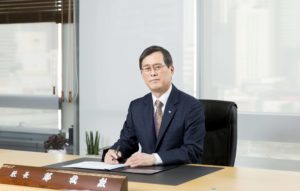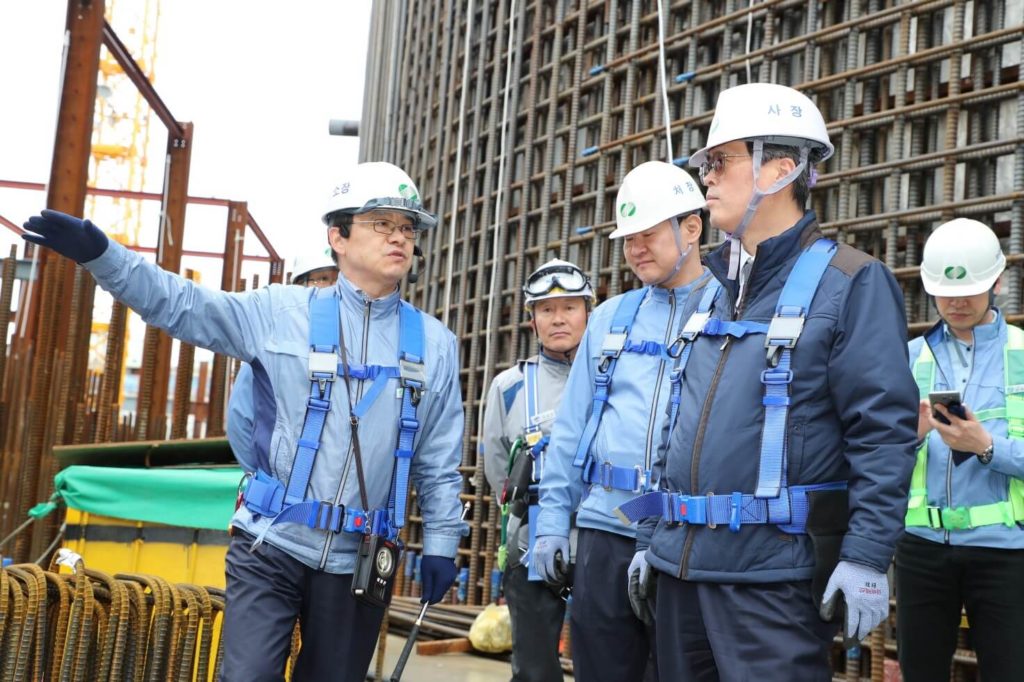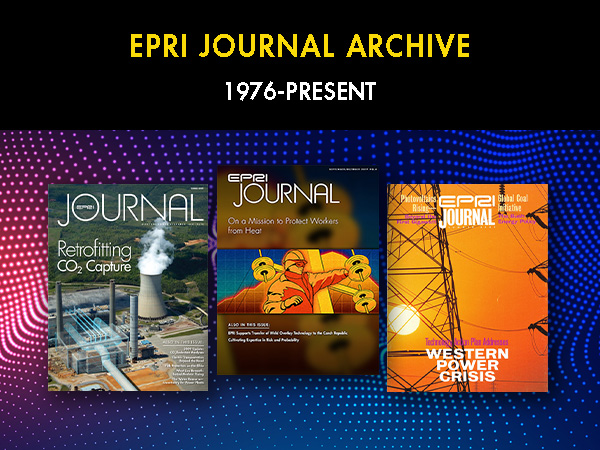The Story In Brief
In June 2019, EPRI, the Nuclear Energy Association, International Atomic Energy Agency, the U.K.-based National Nuclear Laboratory, and Korea Hydro & Nuclear Power (KHNP) are co-organizing the Global Forum on Innovation for the Future of Nuclear Energy in Gyeongju, South Korea. KHNP is hosting the forum. In this interview with the EPRI Journal, KHNP President & CEO Mr. Jae-hoon Chung discusses the state of the nuclear power industry, how KHNP is innovating, and why it’s important for industry leaders to attend the Global Forum.

EJ: Why is this a pivotal time for the global nuclear industry?
Chung: Nuclear power is at a crossroads. Across the globe, the cost of constructing new plants continues to rise, and existing plants face growing economic challenges from other energy sources. While the industry has taken significant steps to address safety issues raised by the Fukushima accident, nuclear plants still face competition from other generation sources.
But the fact remains that nuclear energy is a clean, zero-carbon energy source, and it can assist in humanity’s response to climate change. I believe now is a very critical time for the nuclear power industry to make far-reaching, innovative changes to secure competitiveness.
EJ: What role does innovation play in the nuclear industry?
Chung: Innovation in technology, business models, culture, processes, safety procedures, regulations, and supply systems can reduce costs of design, construction, and equipment. This can help nuclear power plants recover from their economic challenges and become economically competitive with other power sources.
EJ: How has KHNP innovated in recent years?
Chung: KHNP is pursuing innovative improvements in automated diagnosis for predictive maintenance using what we call “4th industrial revolution technology” such as big data, machine learning, virtual reality, and other advanced technologies. With automated diagnosis, plant operators use sensors to monitor equipment defects, conduct comprehensive analysis of these defects, and take measures to prevent plant outages.
Over the next three years, KHNP plans to significantly expand its application of automated diagnosis, implementing wireless sensors and big data for main equipment in the fleet. KHNP also operates intelligent live video monitoring at our construction sites to enable prompt responses if and when a safety accident occurs.
EJ: Why is the Global Forum important for the industry’s future?
Chung: The forum will provide a first-ever venue for leaders across the global nuclear industry to explore innovative technologies and processes under development or deployed in operational plants, learn what is hindering widespread deployment, and determine ways to move those innovations forward in the near future.
In particular, I hope this forum will strengthen international cooperation among nuclear industry leaders, government and regulatory agencies, technology providers, researchers and academia focused on applied research, and innovators from other industries. This can enable more effective implementation of innovative technology and processes in nuclear plants.

EJ: What do you hope participants learn about KHNP while attending the forum in South Korea?
Chung: KHNP is a global and domestic energy partner. We are honored to host this forum near KHNP headquarters and to have an opportunity to showcase the Shin-Kori nuclear power plant, the site of the first Korean-designed Advanced Pressurized Reactor-1400 (APR 1400). The APR 1400 is an advanced, seismic-enforced design utilizing cutting edge technologies, including a digitalized control room and man-machine interface system.
We look forward to sharing South Korea’s progress with nuclear power plant development, with the hopes that it will help advance technological innovations across the globe as well as strengthen the relationships needed to make those advancements. This is an opportunity for KHNP to introduce global nuclear power leaders to innovations that have reduced construction costs and improved operating performance at our plants.
EJ: What would you say to fellow nuclear leaders who may be considering attending this forum? Why should they attend?
Chung: This Global Forum will be a special opportunity for leaders to deeply explore innovative improvements and changes for the better of the industry, and strengthen relationships across all the critical stakeholders that make implementing those innovations possible.
This forum could be one of the most important that leaders participate in this year to overcome the deployment barriers of innovation in nuclear. I urge nuclear plant leaders, regulators, researchers, governments and tech providers (both in and outside the industry) to come to Gyeongju in June. Improving the state of the nuclear industry for the future is a joint effort.


